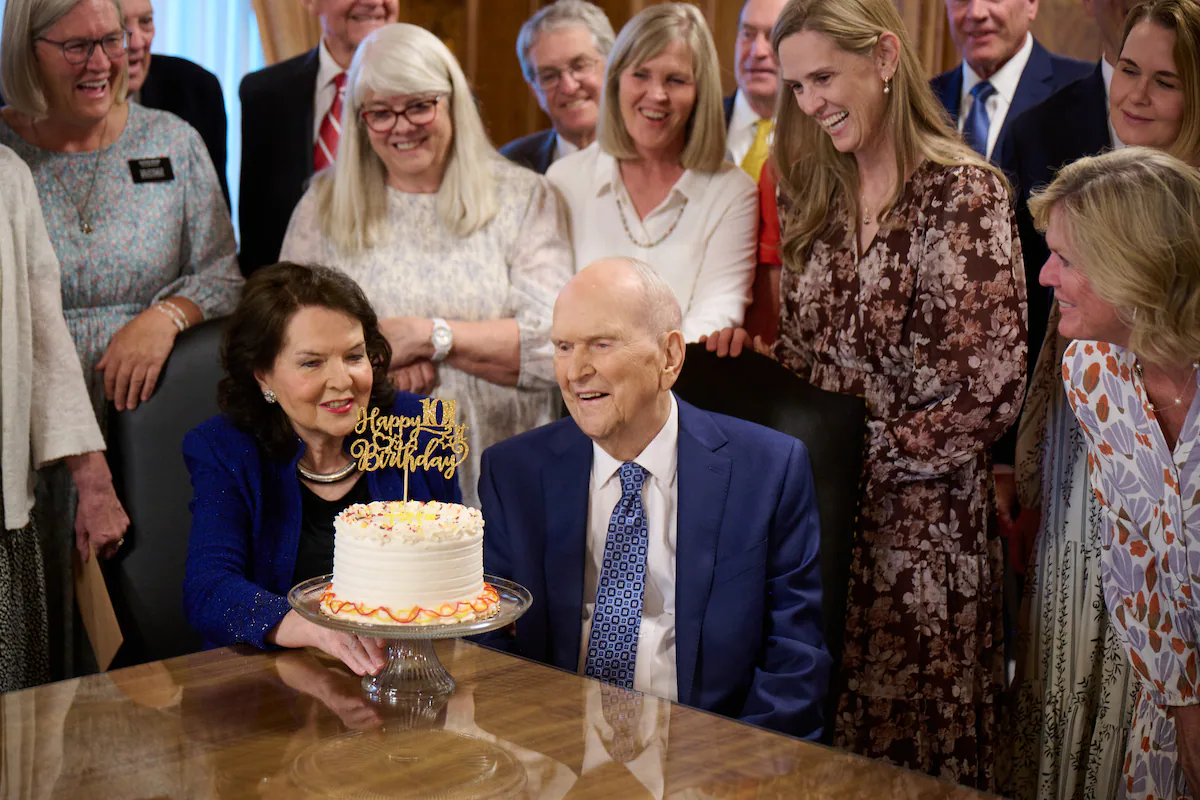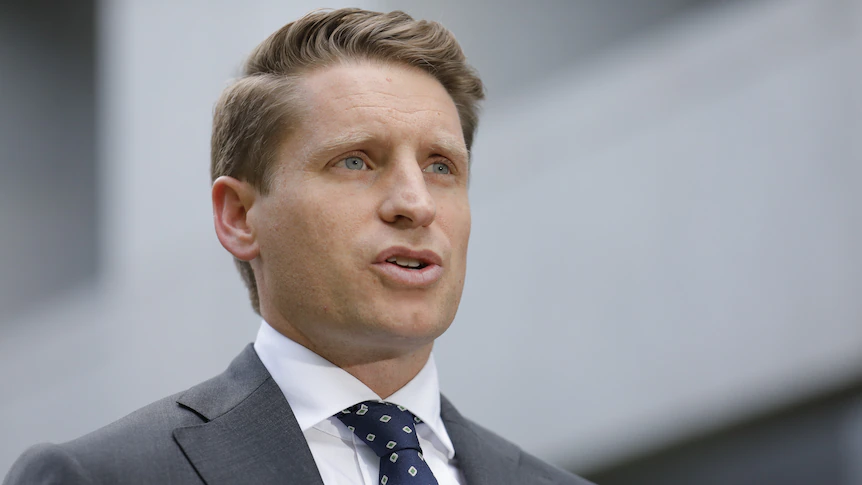
Russell M. Nelson, already the oldest-ever president of The Church of Jesus Christ of Latter-day Saints, turned 101 this month.
Compared to last year’s global birthday fete, with its televised party, this year’s celebration was quieter as Nelson gathered with close family and friends.
Still, just before the calendar marked the day, the faith’s leader published a major essay in Time magazine, extolling the importance of peacemaking in a divided world.
On a recent episode of The Salt Lake Tribune’s “Mormon Land” podcast, Latter-day Saint historian Kathleen Flake, emeritus Bushman professor of Mormon studies at the University of Virginia, ruminated on the centenarian’s life, leadership and legacy. Here are lightly edited excerpts:
Were you surprised by Nelson’s collaboration with the NAACP?
No. … The church always looks for partners and this was an area to undertake it. [Given the church’s history on race], it was quite difficult to find partners. So they found one in a conservative institution. That’s understandable. The church had to prove the sincerity of its intentions. I think that it was … grateful to the NAACP to engage with it. What struck me the most about that was the way the church found areas of common interest and intention with the NAACP. For example, look at the fellowships they gave that are designed to increase African American identity with their roots, and what the church has done in terms of sponsoring those fellowships [to Ghana]. Or the way the church has participated with the museum on slavery in South Carolina, where it has built and maintained a genealogical service. …That was something the church could do that was consistent with its own values, and then the way it worked with neighborhoods and made available its various material services and member contributions to building gardens, etc. Those are all things that The Church of Jesus Christ of Latter-day Saints does internally, and I saw that they crafted those things in such a way that could be a shared engagement with the NAACP.
How do you see the multiple changes to the wording of temple rituals — including more gender equity — during Nelson’s tenure?
It’s complicated. In the last couple of generations, you’ve seen an increasing evangelicalization of the [church’s] temperament. The anxiety about grace, for example, is an affectional, sentimental shift in the kind of Christianity that Latter-day Saints have always expressed, which some people found lacking in the temple. That happens on top of President Nelson’s increasing use of New Testament language to call the church back to discipleship, the centrality of Christ, the emphasis on the power of the crucifixion and resurrection of Jesus Christ. The temple shows all of that. It really, in many ways, is a translation of this ceremony in contemporary terms. Its ritual — liturgical — dimensions have retained their continuity with the past, but there is a linguistic shift that contemporary Latter-day Saints, especially young Latter-day Saints, will be more comfortable with. They’ve softened [the ceremony], sentimentalized it, brought in doctrinal expressions that the congregation is already familiar with. Part of that making comfortable has been, as we’ve seen in our broader culture, the greater sensitivity to gender distinctions.
In general, what has been his approach to women?
He has been remarkably frank in demanding that the women of the church begin to see themselves as having priestly power. You can see several conference talks where he has used the word “plead” — “I plead with the sisters of the church to speak up, speak out. I plead with them to read …the Doctrine and Covenants and learn what priesthood is.” He said, without qualification, men and women who go to the temple are endowed with priesthood power from on high. I don’t know how he could speak any more clearly than he has on that subject. I don’t know how much that’s filtered down, and I agree that there are still some structural dimensions with sexual distinctions that are being made that continue to deserve scrutiny.
Nelson was a renowned heart surgeon. What did you think of his guidance during COVID-19?
This is another place where I don’t think the leadership could have been any more clear about where they stood on vaccinations, even ultimately having him filmed receiving a vaccination. I am nonplussed at the Latter-day Saints who continued to rant and rave about their freedom not to be vaccinated. They certainly were free not to vaccinate. They’re also free not to pay their tithing. What strikes me, not just about COVID, but about other other political issues that have strained relationships in the church, [is that the leaders] are trying to exemplify the lack of contention that they’re calling upon their members to show. That’s how they’ve been surfing the chaos that’s been going on around them by trying to put first things first. And first things are your covenants. It’s not that you don’t have responsibilities as a citizen, but trying not to put members crossways with their covenants, even as they express their political freedoms.
Nelson has used the term “revelation” for his changes more than previous presidents. How do you think his understanding of revelation might be different from those other prophet-presidents?
He’s using the word more, but he’s also made more changes, the scope of which calls upon the use of that word. When you are reorganizing the priesthood structure of the wards, you don’t do that as simply a good idea or as a matter of efficiency, right? When you’re calling upon members of the church to change their worship habits, going to the temple more often, etc., that’s a radical shift in how Latter-day Saints understand their sacramental lives. These are changes in a liturgical or a worship space that you don’t make lightly. And so he needed to assert the legitimacy of his authority to do that. And that word does it.
How do you think his move to eliminate use of the “Mormon” nickname has affected the church and its membership? Will his initiative last?
Requiring Latter-day Saints to use that name has clarified for them the centrality of Christ in their own daily practice, not just their theology, not just their scriptures, but how they move about in the world, how they introduce themselves, and how they tell people what their religion is. I think it’s changed them. It’s coupled also, though, with increasing emphasis in church, preaching and publication about understanding themselves as disciples of Christ. …If somebody wants to change it, they’re going to have to undo all those institutional markers and restraints that he’s put in place. So, yeah, I think it’s going to last. … I know as a scholar, Mormonism is a term … in the study of religion. And it is an appropriate term insofar that, as scholars, we look at all the various religious communities that look to Joseph Smith as their originator.
He has talked a lot about peacemaking in a personal, rather than political sense. Do you see that making a lasting impact on members?
[Peacemaking] is about the conversion of the heart. The church’s most essential business, if you will, is calling people to repentance and to living a Christ-like life. In this regard, so far, I would say the church has, to its credit, kept [political divisions] out of its congregational life in a way that I haven’t seen elsewhere. …I don’t know what more they can do than what they’re doing. What I don’t know is what they’re doing behind the scenes to help their Latin American and other immigrant members. I assume that it’s going on, but I assume they’re going to keep it as quiet as possible so that they don’t get embroiled in United States politics, or anywhere else.
What do you think Nelson will be most remembered for?
In terms of those who study Mormonism, it will be the rapid organizational change of his era, including the identity shifts, global outreach, and all the mechanisms for that that he accelerated, I think he will be remembered for the wisdom of his leadership during COVID. … The most dramatic change in the long history for insiders is going to be his articulation of temple doctrines in the church at large, and making temples accessible to the majority of the church. So I think his themes of priesthood, covenant-making, revelation, all those things are temple-centered doctrines, in particular, and then him making these temples available to people in a way that we could not have imagined in the 20th century is what he’ll be remembered for.



